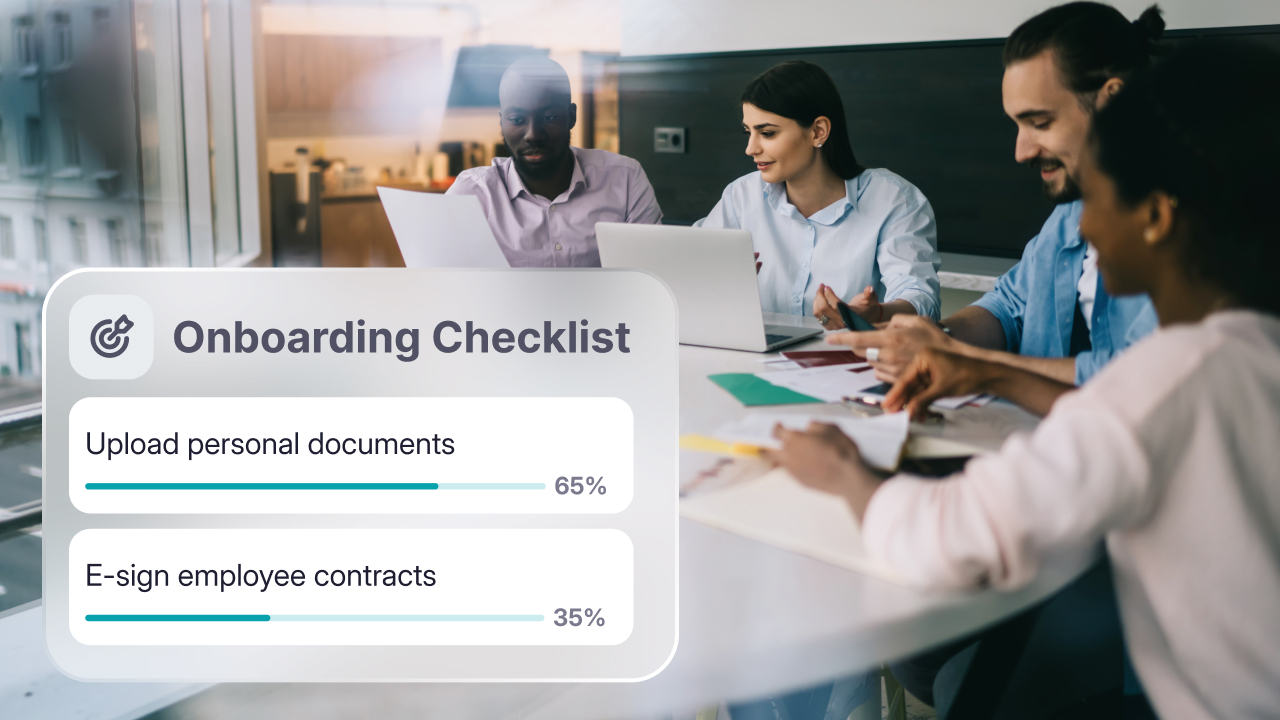Employee relations refers to the relationships between employers and employees and individual and collective relationships within the body of employees. As you might expect, managing employee relations is essential to an effective human resources management team.
The term ’employee relations’ can be used in a practical way (there may be a specific Employee Relations Team within the broader Human Resources department) and also in a more theoretical manner. Any policies, processes or programmes a company has to support its employees are examples of employee relations. Some forward-thinking companies even have their own employee relations plan or strategy to ensure they develop and maintain positive employee relations.
So, why does it matter so much to have good employee relations?
Humans are hardwired to desire connection; research proves that interpersonal relationships significantly impact our mental and physical health. Good employee relations mean people within a business feel more connected to each other and the company and are widely understood to lead to better employee engagement, lower staff turnover and employee complaints and higher productivity.
Put another way, employees with a good relationship with their company feel understood and valued, making them happier and more motivated to do their best work. Research by Gallup in 2012 backs this up: companies scoring in the top quartile on employee satisfaction and engagement outperformed those in the lowest quartile by 21% in productivity.
As we will see in this article, good employee relations are also key to having an effective talent management strategy. Talent management is about having the right people in the right roles at the right time to meet the business needs, now and in the future. By managing employment relations and having good relationships with their employees, companies are more likely to retain staff, understand their training and development needs and attract new talent from outside the company.

What Does ‘Employee Relations’ Mean in Human Resources?
Employee relations efforts are a key part of any human resources team, with some teams having a specific Employee Relations Manager role. The focus of the employee relations department within human resources is to ensure the correct policies, procedures and ethos are in place to look after the people who make up a business’s workforce.
Through this work, the department ensures that the employees can do their work to the highest standard possible and ultimately meet the organisation’s goals. Fostering a positive relationship between the company and its employees forms a significant part of the work done by HR.
Within the HR and employee relations team, looking after employee relations issues can include:
- Encouraging better employee engagement.
- Ensuring working conditions, including health and safety, are appropriate.
- Managing reward and recognition schemes.
- Conflict resolution.
- Managing the performance review cycle.
- Providing policies for grievances and misconduct, such as bullying and sexual harassment.
- Implementing a diversity, equity and inclusion strategy.
- Measures to improve work-life balance.
These areas generally focus on the business as a whole rather than the individuals working within it. They aim to improve employee relations and create a fair, transparent and supportive framework for the company to get the best from its employees.
Areas of HR that fall outside of ’employee relations’ include:
- Recruitment.
- Training and development programmes.
- Administration of pay and benefits.
- Compliance.

Common Issues in Employee Relations
The term ’employee relations’ covers a broad range of potential issues. The following examples are common areas where poor employee relations can develop. A workplace culture with strong foundations and positive relationships can help resolve issues more quickly.
Conflict
Conflicts can include disputes between employees, leadership issues, and personality clashes. When unresolved, conflict can result in decreased productivity, communication problems, and poor company morale. In worst-case scenarios, it can affect turnover and profits.
Sexual Harassment and Bullying
A lack of clear policies, such as an employee relations policy covering sexual harassment and bullying, can result in an undesirable workplace because employees do not feel safe and supported when things go wrong. If left unaddressed, it can harm employee performance, team morale and the company’s reputation, and also lead to an increase in absenteeism.
Wage, Hours and Annual Leave Issues
If you fail to define working hours and compensation packages clearly, it can lead to employee disputes when people do not understand what is required of them and what the rules are. It could also result in non-compliance and wage and hour violations.
Workplace Health and Safety
All workers are entitled to work in an environment where risks to their health and safety are adequately controlled. Employers must consult with their employees on health and safety matters. If the working environment is unsafe, then it will have a direct effect on the employee experience.
Why an Effective Talent Management Strategy Needs Strong Relationships with Employees
Turning our attention to how crucial good employee relations policies are for talent management, it is helpful to remind ourselves of what talent management includes. To have the right people in the right roles with the right skills to achieve business objectives, organisations need to think about the following areas:
- Recruitment and onboarding.
- Performance management and feedback.
- Learning and development.
- Succession planning.
- Employee engagement.
Maintaining positive employee relations is essential for an effective talent management strategy for three reasons.

-
Knowledge
Creating and implementing a successful talent management strategy requires a strong understanding of the business needs and individual employee’s strengths, areas for development and personal objectives.
Good relations ensure that there is an open dialogue between employee and employer, which means that the employer knows:
- How individuals feel about their current role and how engaged they are.
- Whether people are likely to leave and how they might be encouraged to stay.
- How clearly the wider business strategy is understood.
- What learning and development individuals need to progress.
- How to have difficult conversations which can help individuals develop themselves.
Crucially, good relations between leadership and employees also mean that the talent management team is fully aware of the business needs and works to meet them.
-
Facilitates an Inclusive Culture
A company with good employee relations is more likely to ask for feedback, listen to and respond to what is shared, creating an inclusive culture. Inclusiveness improves employee engagement and retention, which is critical to a successful talent management strategy.
An inclusive culture is also linked to business success because different perspectives lead to more significant innovation, better decision-making and an improved reputation.

-
Promotes a Positive Brand Reputation
Talent management involves looking outside the business and internally because there may be a requirement for skills and experience that need external recruitment. Companies with solid employee relationships become known within their sectors for being good places to work, which makes it easier to bring in new talent.
Tips for Building Strong Relationships with a Focus on Talent Management
-
Focus on Communication
When building strong relationships with employees and focusing on talent management, the key – as with any good relationship – is open, honest and professional communication. Communication in the employer-employee relationship needs to be both ways, with the organisation actively listening to its employees and ensuring that leadership shares what they need with the workforce.
Good communication is the basis of building trust, generating mutual respect, developing self-awareness (both on an individual and collective level) and being inclusive.
-
Make Good Relationships a Central Tenet of your Talent Management Strategy
This investment will pay off: companies that focus on employee attitudes and building good employment relations have employees who trust them, talk to and stay with them – and encourage others to come and work for them.
It also sends a positive message to the whole workforce: employees know that they are valued because they can see the time and effort that goes into ensuring there are good relations. Small gestures such as leaders taking time to meet with those lower down the hierarchy, regular updates on what the organisation is focussing on with employee relations and communication demonstrating a focus on emotional intelligence can all help.
-
Ensure Leaders and Managers are on Board
Talent management does not exist in a silo within the HR department. Good relationships need to be integral to the whole business, and it’s essential to have leaders and managers who role model how to build those relationships. Training in emotional intelligence, such as workshops and coaching for the entire workplace, is a good starting point if this area needs development.
-
Remember the Basics of Building Good Workplace Relationships
We’ve discussed the importance of communication as the bedrock for a good working relationship, but there are other ways to improve employee relations. These ideas can be part of the approach to the employee experience and the employee relations strategy. All these suggestions benefit the talent management strategy as they help employees to feel valued, supported and engaged in their roles.
- Show appreciation and gratitude for the work done; consider implementing a rewards and recognition programme.
- Be kind and provide guidance and support.
- Conduct regular surveys to understand how people are feeling.
- Provide support for a better work-life balance, such as remote working, time for exercise during the day or counselling support.
- Offer to support professional development, either through time off or financial aid.
- Avoid micromanaging: show your employees you trust them.
- Create and use (in a timely fashion) policies to resolve grievances and disputes.
- Treat everyone fairly and do not have favourites.

Tips for Repairing Difficult Professional Relationships
Inevitably, there will be issues in working relationships or conflicts that need resolving. HR professionals involved in employment relationships or talent management may need to facilitate meetings to repair complex relationships between two employees and resolve disputes between themselves, line managers and other employees. Acting as a role model for approaching these difficult situations is an essential and often undervalued aspect of working within HR.
Here are some reminders about how to handle relational and workplace conflicts within the workplace:
- Have a conflict resolution policy.
- Ensure there is a meeting to discuss the issue, ideally held in person and with a clear agenda and guidelines for how to behave.
- Encourage both sides to listen to the other perspective and acknowledge their parts.
- Identify the positives in the working relationship and any existing shared goals.
- Find mutually beneficial goals to aim for together in the future.
- Facilitate agreement between all parties on the next steps for how to move on.
- Provide counselling support if required.


